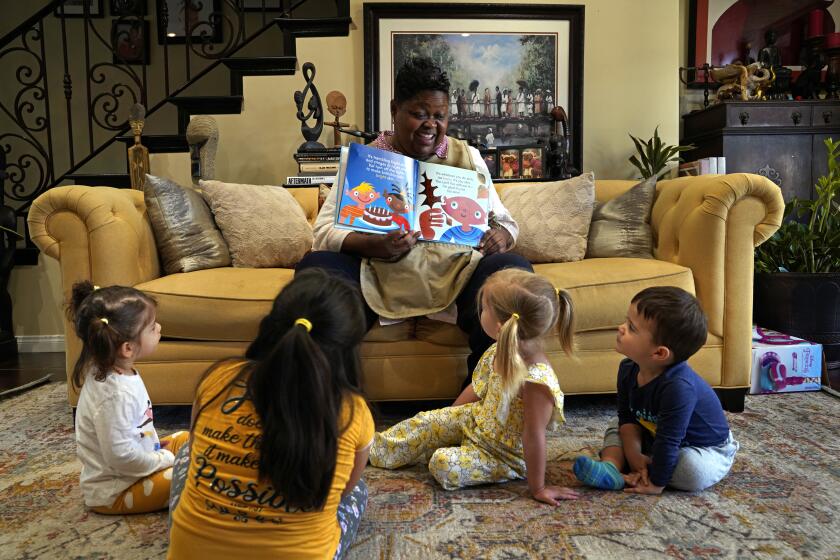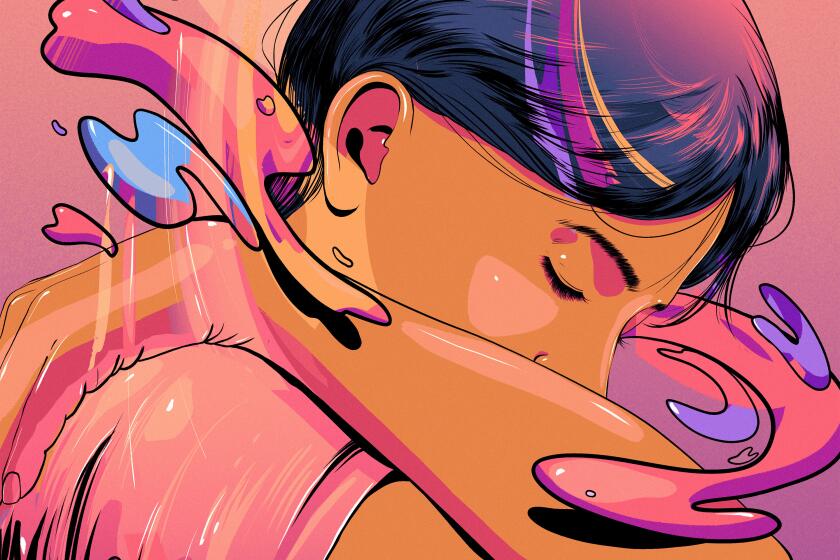Four months sober, Cara Delevingne reflects on what prompted her to seek treatment

- Share via
Cara Delevingne is four months sober after seeking treatment for substance-use disorder.
“It was my first sober Christmas, my first sober New Year,” Delevingne said during a Vogue interview published Wednesday. “And honestly it was the best I’ve ever had.”
Throughout her career, the actor and model has been open about her mental health, sharing in 2015 that she struggled with depression, anxiety, self-hatred and suicidal ideation. But it wasn’t until late last year that she decided to address her healing head on by committing to a 12-step program, she told Vogue.
A list of crisis hotlines, low-fee and sliding scale counseling, support groups, and mindfulness and meditation services
Delevingne said a major turning point came after seeing paparazzi images of her disheveled self at the Van Nuys Airport in September. She had just finished a series of trips that included a huge 30th-birthday bash, a three-week vacation in Ibiza and Burning Man in Nevada.
“It’s heartbreaking because I thought I was having fun, but at some point it was like, ‘OK, I don’t look well,’” she said. “You know, sometimes you need a reality check, so in a way those pictures were something to be grateful for.”
Even so, Delevingne lamented during the interview about the role paparazzi continue to play in normalizing shame toward people who need help. “It makes the whole cycle worse for people going through it,” she said.
Media mistakes annoy Margot Robbie. She knows it’s part of the job, but for the record, she wasn’t outside Cara Delevingne’s house and wasn’t crying.
As her network of friends surrounded her after the release of the images, she decided to seek treatment.
“All I knew is if I was continuing to go down the road I was, I would either end up dead, doing something really, really stupid, and that was scary,” she said.
Delevingne said she needed a communal setting to heal and address the internalized shame and self-hatred that she had been running from by turning to alcohol and drugs. The substances made her feel “invincible,” she said, but also became “a scary thing to the people around you who love you.”
Personal essays, insight from experts and resources to help manage mental health.
In treatment, she said she began to face herself more honestly and gave herself “the chance to really be who you are and sit in that uncomfortability.”
“Because my God, it’s quite uncomfortable for a minute,” she added, “but it gets better, and it’s worth it. “
In her recent months of sobriety, Delevingne said, she has been able to do things she had always enjoyed, such as going out and dancing, but with a different perspective. She actually had “deep conversations and connections with people.”
And she noticed another weird thing after treatment: “I got back to this house and it just looked different,” she said. “It’s like it was a new place because I was different.”
Suicide prevention and crisis counseling resources
If you or someone you know is struggling with suicidal thoughts, seek help from a professional and call 9-8-8. The United States’ first nationwide three-digit mental health crisis hotline 988 will connect callers with trained mental health counselors. Text “HOME” to 741741 in the U.S. and Canada to reach the Crisis Text Line.
More to Read
The biggest entertainment stories
Get our big stories about Hollywood, film, television, music, arts, culture and more right in your inbox as soon as they publish.
You may occasionally receive promotional content from the Los Angeles Times.














